Advertisement
Beauty and technology have developed innovative solutions, from personalized cosmetics, skincare, and haircare recommendations to virtual try-ones, augmented reality (AR), and sustainable product formulation. These solutions have changed customers' attitudes towards cosmetics, skincare, and hair care products, how companies market their products in the industry, and completely reformed customer experience.
With continuous changes in the industry, mostly positive, the beauty and haircare industry will continue to evolve, bringing more advanced styling tools, skincare guide apps, and more personalized products, enhancing customer experience. Keep reading to understand how the industry is experiencing a remarkable transformation through AI integration!

The global AI beauty industry is growing at a rapid pace. Many companies invest in AI-driven formulations and personalized recommendations to improve customer experience. In a nutshell, the AI is reshaping the beauty industry. AI is playing a major role in the AI industry in the following ways:
AI has impacted the beauty industry in significant ways, including providing the ability for personalized recommendations. AI algorithms analyze your purchase history, preferences, skin type, and skin conditions and give you recommendations that are relevant only to you. It's like having your makeup artist or dermatologist on a screen providing you with personalized recommendations on makeup shades and skincare routines. Many companies, including Sephora, use AI algorithms to suggest specific customer-tailored products. Other startups, such as Skin Match, have created AI solutions that provide the exact shade match of the customer's skin, even creating makeup on the customer that will suit her skin type. Personalized recommendations have increased customer loyalty and, eventually, revenues.
Some cosmetic and skincare products cause allergic reactions in customers or are made up of non-eco-friendly chemicals. AI can become a major source of information and recommendations for alternative ingredients for cosmetics and skincare. AI has stepped into product formulations and is helping develop products that align with the growing demand of customers. AI helps manufacturers analyze the ingredients and the product's lifecycle and create eco-friendly and allergy-free products. The AI can recommend alternate ingredients that are more suitable for the skin and the environment, decreasing the environmental impact of cosmetics and skincare products.
With virtual try-on and AR filters, customers can test makeup products on their faces through a screen. They can test what lipstick they should buy, create stunning makeup looks and nail colors, and experiment with different hair colors without making a purchase. It has made buying cosmetics and other beauty products more fun and efficient. This technology has many advantages; it engages the customers and decreases the need for sample products for testing. L'Oreal augmented reality (AR) powered an app called "Modiface" that helped improve the customer experience.
Nowadays, AI-powered skincare analysis apps are gaining hype. These apps analyze customers' skin, detect issues such as acne or dehydration, and then prepare personalized skincare routines and products tailored just for the customer. For example, Neutrogena launched an app called Skin360. In it, you upload your self-portrait, which machine learning and image recognition use to analyze face features, identify skin types and issues, and recommend suitable products. Perfect Corp. has also developed an AI Skin Care tool that provides skincare routines and personalized recommendations tailored to an individual’s unique skin type and conditions. This tool uses artificial intelligence to analyze portraits of individuals and detect 14 types of skin conditions. Similarly, other skincare companies, such as L'Oreal, Nivea, and Lululab Inc., have also developed skin care apps that provide personalized recommendations for skincare products.

Just like AI is reforming the cosmetic and skincare industry, hair care is no exception. AI is changing the approach of customers and companies towards hair styling and hair care products; here's how:
Traditional hair care methods are assumed to fit all, but that's not effective. You need hair care recommendations and methods that specifically suit your hair type and condition. AI-driven tools and devices can analyze your scalp and hair conditions through digital imaging. It provides them with detailed information and insights about your hair health, texture, and scalp conditions. After analyzing your hair type and scalp condition, AI recommends shampoos, conditioners, hair masks, treatments, and styling products tailored just for you. AI algorithms use machine learning and data from millions of people to identify and recommend the best products. The more data it gathers, the more accurate the recommendations will be, and the customer experience will continuously improve.
With virtual try-ons, Augmented reality tools (AR) allow you to virtually try different hair colors, haircuts, and hairstyles and see what looks best on you before making your final decision. It increases your confidence and experience, reducing dissatisfaction. To enhance your experience further, AI can now schedule your appointments and track your previous hair treatments, hairstyles, and other preferences for a more personalized experience.
Future AI trends in the beauty industry include an AI-powered retail experience that provides a personalized experience at the physical store. AI's role in skincare is expected to increase in the future, with more advanced skincare apps that can track changes in skin issues, everything with just your mobile's camera.
AI can also read the market and feedback from customers and identify gaps, leading to more creative products that the market is seeking. AI in the future can also predict hair and scalp conditions before they even appear, helping in early detection and recommending the products accordingly. AI could also provide advanced hairstyling tools.
The beauty industry has become more advanced and digitalized, thanks to the AI integrations that made it possible. Beauty, skincare, and hair care enthusiasts can now experience more personalized recommendations with different products. For example, the perfect shade match for foundation, the perfect shade of lipstick that suits your skin's undertone. AI does skin analysis first and then recommends personalized skincare routines and products that are suitable for skin type and condition. Suppose your scalp is suffering from dandruff and other conditions. In that case, AI will analyze and recommend suitable hair care and styling products that cater to your conditions the most.
Advertisement
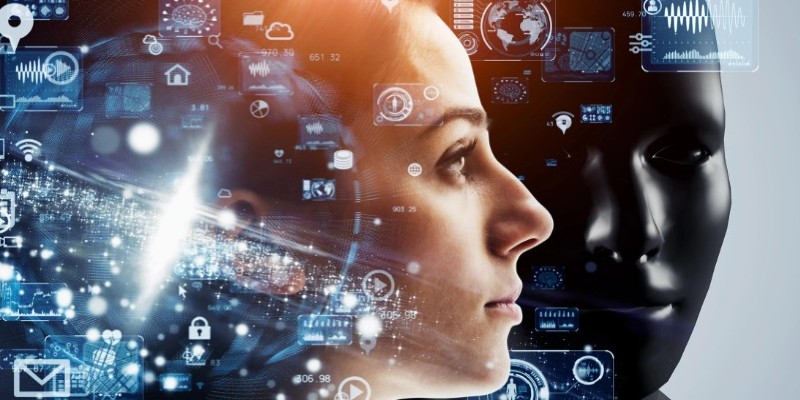
Think picking the right algorithm is enough? Learn how tuning hyperparameters unlocks faster, stronger, and more accurate machine learning models

How can machines better understand videos? Explore how X-CLIP integrates video and language to offer smarter video recognition, action recognition, and text-to-video search

Improve machine learning models with prompt programming. Enhance accuracy, streamline tasks, and solve complex problems across domains using structured guidance and automation.

Need to round numbers to two decimals in Python but not sure which method to use? Here's a clear look at 9 different ways, each suited for different needs
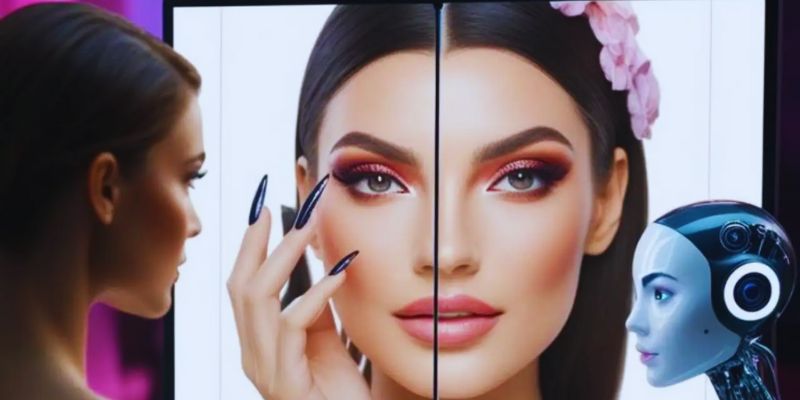
AI is used in the beauty and haircare industry for personalized product recommendations and to improve the salon experience

Follow these essential steps to build a clean AI data set using Getty Images for effective and accurate machine learning models

What happens when AI goes off track? Learn how Guardrails AI ensures that artificial intelligence behaves safely, responsibly, and within boundaries in real-world applications
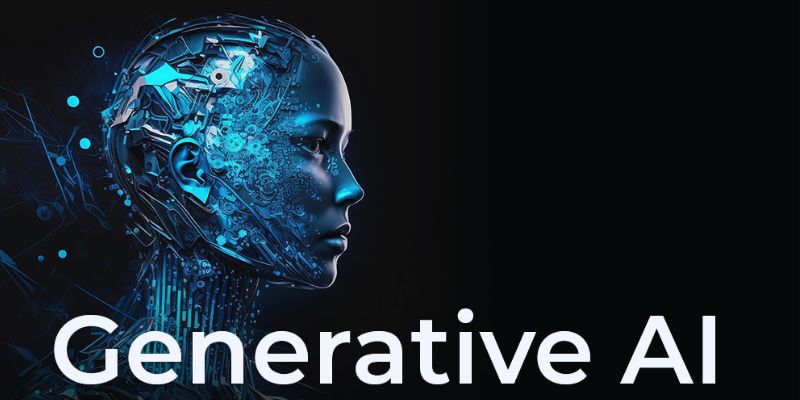
Discover how generative AI for the artist has evolved, transforming creativity, expression, and the entire artistic journey
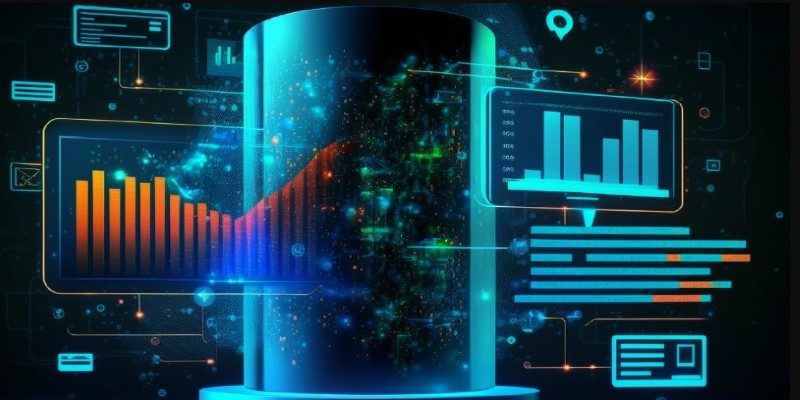
Curious how Tableau actually uses AI to make data work better for you? This article breaks down practical features that save time, spot trends, and simplify decisions—without overcomplicating anything
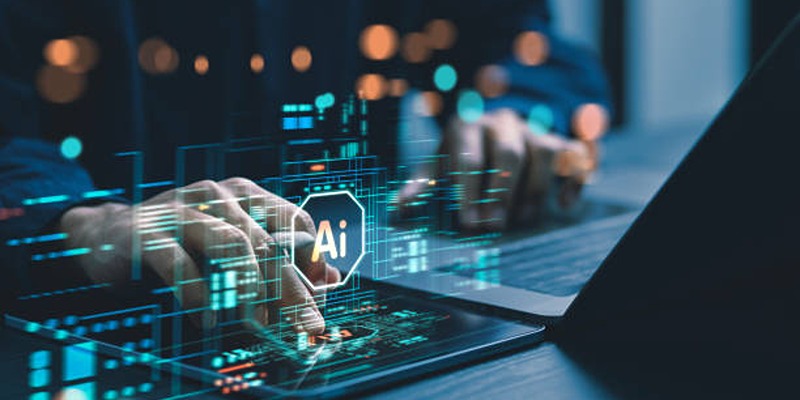
Learn simple steps to prepare and organize your data for AI development success.

How Georgia Tech is transforming supply chain management with AI through education, research, and partnerships, creating smarter and more resilient global networks

Learn how to make your custom Python objects behave like built-in types with operator overloading. Master the essential methods for +, -, ==, and more in Python